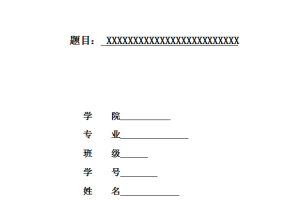Contents
1Introduction………………………………………………………………………………………………….. 1
2Literature Review………………………………………………………………………………………….. 3
2.1Previous study at abroad……………………………………………………………………….. 4
2.2Previous study at home…………………………………………………………………………. 5
3 Theoretical Basis of Autonomous Learning………………………………………………………. 6
3.1 The constructivism teaching theory……………………………………………………….. 6
3.2The Structuralize teaching theory…………………………………………………………… 7
3.3The Met cognitive Theory……………………………………………………………………… 8
4The problems of English autonomous learning to the upper primary school students .8
4.1Bad habits of preview…………………………………………………………………………… 9
4.2Lacking of self-confidence and innovate consciousness……………………………. 9
4.3Finishing homework passively……………………………………………………………… 10
4.4Single way in learning English……………………………………………………………… 10
5.1Stimulating students’ active learning …………………………………………………… 10
5.2Guidance of students to do autonomous learning…………………………………… 12
5.3Creating autonomous learning environment…………………………………………… 13
6Conclusion………………………………………………………………………………………………….. 16
Works Cited………………………………………………………………………………………………….. 17
Acknowledgments…………………………………………………………………………………………. 19
Appendix……………………………………………………………………………………………………… 21
The Strategies of Training the Abilities of Autonomous Learning in Upper Primary School Students
Abstract
Autonomous learning is a new way of study, that is to say, the students manage to do their own learning. It can effectively improve the quality, level and efficiency of learning. It is good for the students’ survival and development in the future and lifelong learning. It takes the elementary school higher grades (Grade Four, Five, Six) students as subjects, through the analyses of the status of students’ autonomous learning ability and characteristic, it demonstrates the autonomous learning in primary schools carry the necessity and feasibility in the English teaching practice, and the ways to cultivate students’ autonomous learning ability.
It adopts the form of questionnaire and does the data analyses. The result shows that the students’ English autonomous learning ability is low; they lack of the motivation of study; they are short of learning goals and detailed study plans; they always do passive learning and lack of active learning consciousness and study monitoring ability; they seldom use learning strategies; and their self-assessment ability needs to improve. The significance of this research is trying to train elementary student’s independent learning ability referring to the implementation of the strategies: stimulating students’ active learning; guidance to students autonomous learning and creating autonomous learning environment.
Key words: Autonomous learning the ability of learning upper primary school students learning strategies





